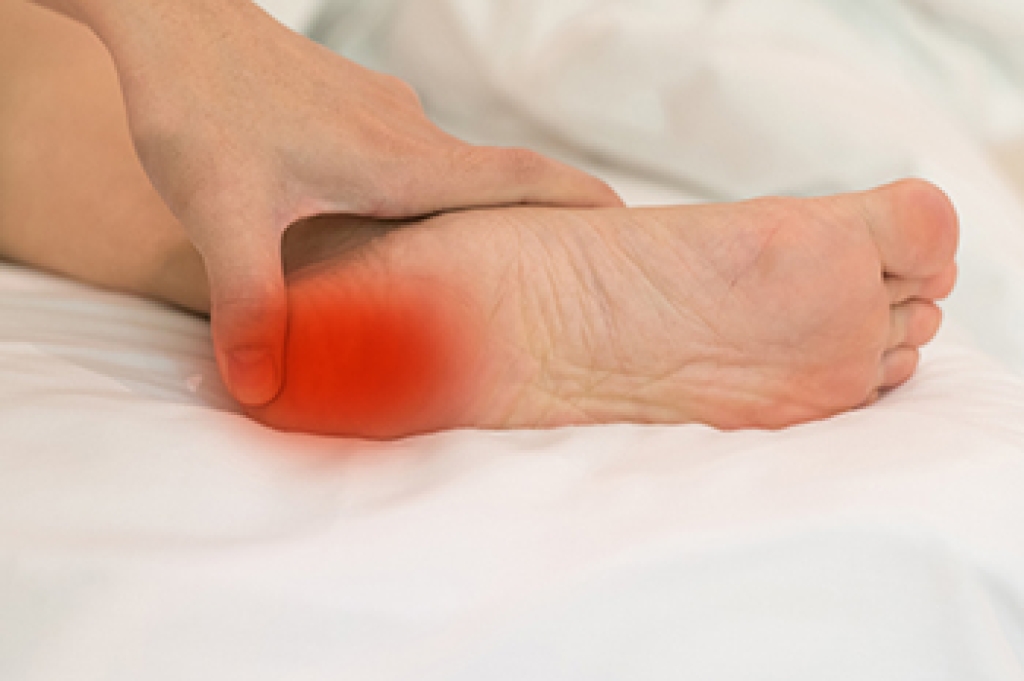
During the propulsion (toe off) stage of walking, toes bear the weight of the body as your heels rise. During this process, the toes are supported by the long, fibrous plantar fascia ligament on the bottom of the foot that connects the toes with the heel. The plantar fascia also absorbs weight and support the toes and arch when running, jumping, and dancing. Repeated stress due to overuse, obesity, improper footwear, structural anomalies in the feet, and other factors can cause the plantar fascia to become irritated, torn, and inflamed. This is a painful condition known as plantar fasciitis. The pain felt with plantar fasciitis is typically at its worst in the morning when you first wake up and begin to take your first steps. Because it is the most common form of heel pain, podiatrists see plantar fasciitis patients regularly and have a variety of options to treat it. If you are having heel pain, make an appointment with a podiatrist for an exam to get properly diagnosed and treated.
Plantar fasciitis is a common foot condition that is often caused by a strain injury. If you are experiencing heel pain or symptoms of plantar fasciitis, contact Elie C. Daniel, DPM from Illinois. Our doctor can provide the care you need to keep you pain-free and on your feet.
What Is Plantar Fasciitis?
Plantar fasciitis is one of the most common causes of heel pain. The plantar fascia is a ligament that connects your heel to the front of your foot. When this ligament becomes inflamed, plantar fasciitis is the result. If you have plantar fasciitis you will have a stabbing pain that usually occurs with your first steps in the morning. As the day progresses and you walk around more, this pain will start to disappear, but it will return after long periods of standing or sitting.
What Causes Plantar Fasciitis?
- Excessive running
- Having high arches in your feet
- Other foot issues such as flat feet
- Pregnancy (due to the sudden weight gain)
- Being on your feet very often
There are some risk factors that may make you more likely to develop plantar fasciitis compared to others. The condition most commonly affects adults between the ages of 40 and 60. It also tends to affect people who are obese because the extra pounds result in extra stress being placed on the plantar fascia.
Prevention
- Take good care of your feet – Wear shoes that have good arch support and heel cushioning.
- Maintain a healthy weight
- If you are a runner, alternate running with other sports that won’t cause heel pain
There are a variety of treatment options available for plantar fasciitis along with the pain that accompanies it. Additionally, physical therapy is a very important component in the treatment process. It is important that you meet with your podiatrist to determine which treatment option is best for you.
If you have any questions, please feel free to contact our offices located in Princeton, Peru, and Mendota, IL . We offer the newest diagnostic and treatment technologies for all your foot care needs.
